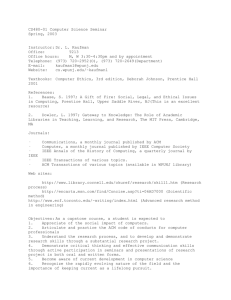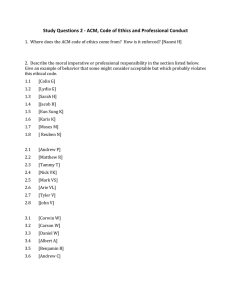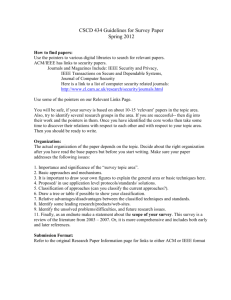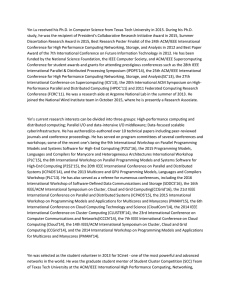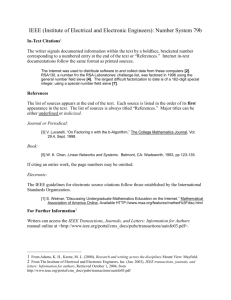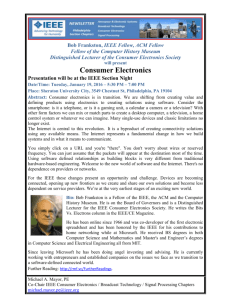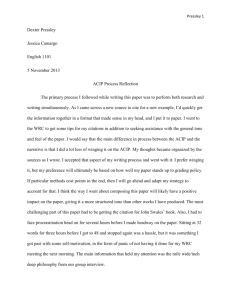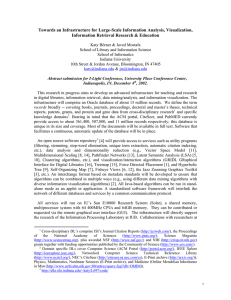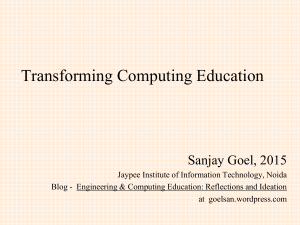Syllabus - Computer Science Home
advertisement
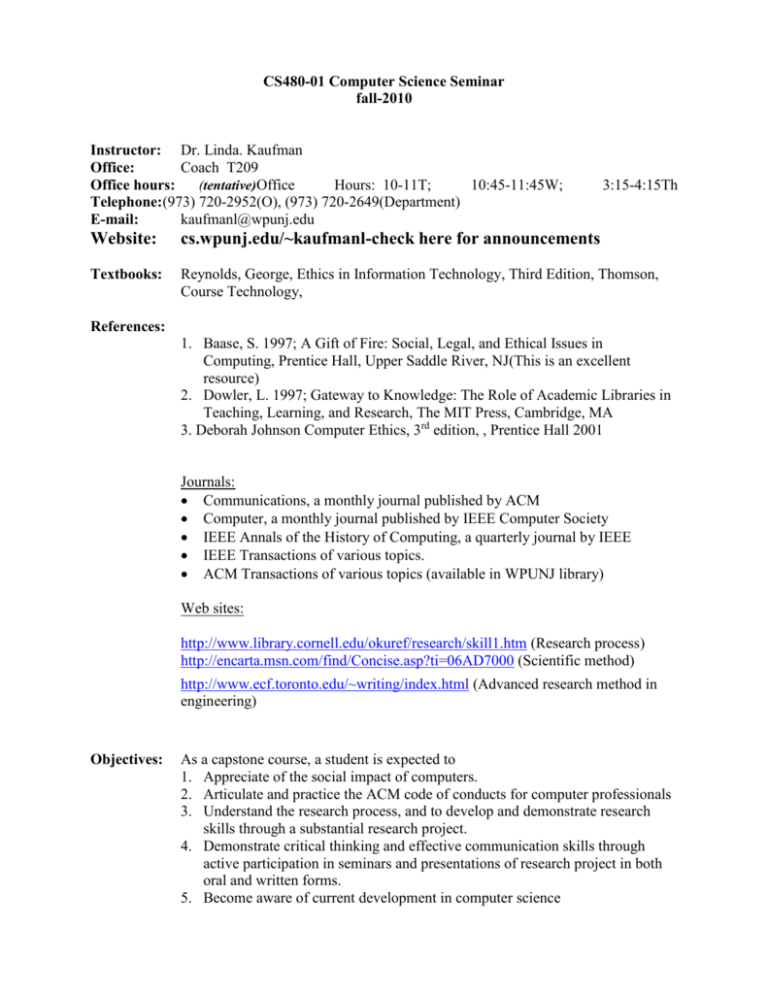
CS480-01 Computer Science Seminar fall-2010 Instructor: Dr. Linda. Kaufman Office: Coach T209 Office hours: (tentative)Office Hours: 10-11T; 10:45-11:45W; Telephone:(973) 720-2952(O), (973) 720-2649(Department) E-mail: kaufmanl@wpunj.edu 3:15-4:15Th Website: cs.wpunj.edu/~kaufmanl-check here for announcements Textbooks: Reynolds, George, Ethics in Information Technology, Third Edition, Thomson, Course Technology, References: 1. Baase, S. 1997; A Gift of Fire: Social, Legal, and Ethical Issues in Computing, Prentice Hall, Upper Saddle River, NJ(This is an excellent resource) 2. Dowler, L. 1997; Gateway to Knowledge: The Role of Academic Libraries in Teaching, Learning, and Research, The MIT Press, Cambridge, MA 3. Deborah Johnson Computer Ethics, 3rd edition, , Prentice Hall 2001 Journals: Communications, a monthly journal published by ACM Computer, a monthly journal published by IEEE Computer Society IEEE Annals of the History of Computing, a quarterly journal by IEEE IEEE Transactions of various topics. ACM Transactions of various topics (available in WPUNJ library) Web sites: http://www.library.cornell.edu/okuref/research/skill1.htm (Research process) http://encarta.msn.com/find/Concise.asp?ti=06AD7000 (Scientific method) http://www.ecf.toronto.edu/~writing/index.html (Advanced research method in engineering) Objectives: As a capstone course, a student is expected to 1. Appreciate of the social impact of computers. 2. Articulate and practice the ACM code of conducts for computer professionals 3. Understand the research process, and to develop and demonstrate research skills through a substantial research project. 4. Demonstrate critical thinking and effective communication skills through active participation in seminars and presentations of research project in both oral and written forms. 5. Become aware of current development in computer science 6. Recognize the rapidly evolving nature of the field and the importance of keeping current as a lifelong pursuit. 7. Demonstrate programming skills. Assessment: Classroom participation (your mere presence is not enough.)-5% Performance as a leader on topical discussions in the areas of social impact of computers and code of conduct for computer professionals. (based on style, preparation, and content)-23% Research project based on quality of written report and oral presentation (based on style, preparation, and content).-40% Homework assignments-( Pop quizzes may be given to ensure students are doing their own homework)-22% Final-10% Class rules: Classes will be conducted in seminar forms, so your active participation is critical to the success for the course. Consequently, attendance will be taken and those who miss classes will be penalized. Note that anyone who misses 7 classes unexcused will automatically fail the course. The highest standard of ethics will be applied-plagiarism from others or the internet will not be tolerated. When speaking about unethical behavior, do not cross the line yourself. No smoking or cell phones. Topical outline and time allocation Part I: Topics on current interest in computer science and new development in computing technologies (Approximately 4 weeks) during these four weeks, seminars will be given by professors or guest speakers on various topics of interest in computer science. Students must identify a topic to perform research by the end of February. Part II: Oral presentations by students on topics on ethics of computer professionals and social impact of computers (approximately 3.5 weeks). Each student will give a 15-20- minute talk. Other students and professor will evaluate the talk, ACM and IEEE code of conduct for computer professionals Freedom of speech versus censorship in cyberspace Privacy: controlling and potential misuse of information Intellectual property: the implication of copyrights, and patent laws Computer crime and the culture of the hackers Risks of errors in large computer systems Part III: Oral presentations by students of their research results: 20-25 minutes. Abstract of the presentation must be made available (either in printed form or on the web) to others at least one week ahead of the time. Written report of 5-10 pages which will be 1/3 of the research grade. A rough draft or outline of the paper is due 2 weeks before the oral report and final report is due either 2 weeks after the oral report or the last class whichever is earliest. You cannot submit projects used for other classes!
